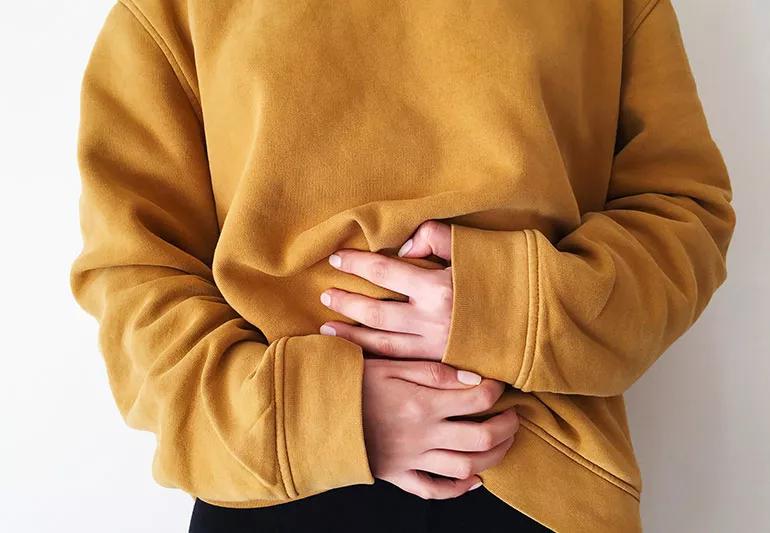The short answer from a women’s health practitioner

Image content: This image is available to view online.
View image online (https://assets.clevelandclinic.org/transform/c5e2571c-95bf-4319-b8c2-1e2f672217a8/BladderEmptying-1220777138-770x533-1_jpg)
Close-up of an individual holding their torso in apparent pain
A: It can be a very uncomfortable and unsatisfying feeling to have the sensation of needing to pee, but not being able to completely relieve your full bladder. This is called ‘incomplete bladder emptying’ or ‘urinary retention’ and it’s very common in women. This occurs when the muscles of your bladder are not able to squeeze properly in order to empty your bladder.
Advertisement
Cleveland Clinic is a non-profit academic medical center. Advertising on our site helps support our mission. We do not endorse non-Cleveland Clinic products or services. Policy
Two problems are usually responsible for a woman’s sensation that she can’t empty her bladder, or void, completely. One is dysfunction of the bladder muscle and the other is a blockage/obstructive process (such as prolapse or a previous incontinence sling).
You may find it helpful to reposition yourself or lean forward on the toilet to help relax and empty your pelvic floor muscles while urinating. Specialized pelvic floor physical therapists can teach women to train their pelvic floor muscles to relax more completely during voiding.
Alternatively, women who have pelvic organ prolapse (when an organ in the pelvis slips down from its normal position and bulges into the vagina) can simply reduce the prolapse bulge with their fingers to more fully empty their bladder. We can also fit people with a pessary to help alleviate symptoms.
There are solutions to this frustrating problem. Consult with your doctor to find what approach is right for you.
— Certified nurse practitioner in Urogynecology and Pelvic Floor Disorders Abigail Anderson, CNP.
Advertisement

Sign up for our Health Essentials emails for expert guidance on nutrition, fitness, sleep, skin care and more.
Learn more about our editorial process.
Advertisement
Endometriosis, pelvic floor dysfunction and bladder issues can all contribute, but relief is within reach
Eliminating certain items, like soda and citrus, can help relieve your bladder discomfort
A bladder infection is definitely a UTI ... but not all UTIs are bladder infections
These 3 changes may be clues to other problems
Bleeding is a risk and warrants taking care, but the reward of this lifesaving medication is great
Type 2 diabetes isn’t inevitable with these dietary changes
Applying a hot or cold compress can help with pain
Pump up your iron intake with foods like tuna, tofu and turkey